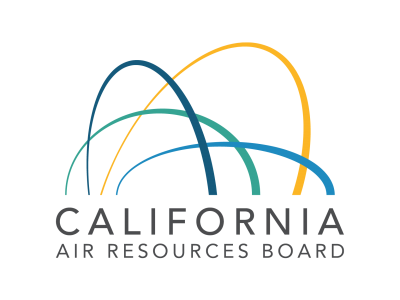For logistics professionals operating in California, adhering to the state's stringent environmental regulations is paramount. The California Air Resources Board (CARB) continues to implement and update measures aimed at reducing emissions and promoting cleaner transportation. CARB regulations are widely regarded as some of the toughest environmental standards in the United States. This article provides an overview of current CARB requirements and highlights new regulations set to take effect in the near future.
Existing CARB Regulations Affecting Transportation
Truck and Bus Regulation

The Truck and Bus Regulation, established by CARB in 2008, targets the reduction of greenhouse gases and diesel particulate matter emissions. It applies to all diesel trucks and buses operating within California with a Gross Vehicle Weight Rating (GVWR) greater than 14,000 pounds.
As of January 1, 2023, vehicles with a GVWR over 26,000 pounds are required to have 2010 or newer engines to operate legally in California. The California Department of Motor Vehicles (DMV) enforces this by denying registration to non-compliant vehicles.
Operators must register their vehicles with CARB's Truck Regulation Upload, Compliance, and Reporting System (TRUCRS). Exceptions exist for trucks operating less than 1,000 miles annually within California (which can qualify for the "low-use exemption”) and for those obtaining a "three-day pass" allowing limited operation within the state.
Transport Refrigeration Unit (TRU) Regulation
CARB regulations for diesel-fueled Transport Refrigeration Units (TRUs) are aimed at reducing emissions and promoting cleaner technology. TRUs installed on trucks must comply with specific requirements based on engine horsepower and model year to meet Ultra-Low Emission TRU (ULETRU) standards. Key updates include:
- Refrigerants: As of December 31, 2022, all new TRUs must use refrigerants with a Global Warming Potential (GWP) less than 2,200.
- Emission Standards: TRUs manufactured in model year 2023 or later must meet stricter particulate emission standards aligned with U.S. Environmental Protection Agency (EPA) regulations.
- Facility Reporting: Owners of facilities where TRUs operate must register with CARB, pay fees every three years, and report all TRUs operating at their facility.
- TRU Owner Reporting: TRU owners must report all TRUs operating in California to CARB, pay operational fees, and affix CARB compliance labels to their units every three years.
- Zero-Emission Transition: By December 31, 2029, all truck TRUs operating in California must be zero-emission.
On January 3, 2025, the U.S. EPA granted California authorization to enforce certain elements of its TRU Regulation. However, the EPA did not act on the requirement for a 15% annual turnover of diesel-fueled truck TRUs to zero-emission technology starting December 31, 2023. Consequently, CARB has withdrawn this specific requirement and is evaluating the next steps.
CARB Regulations in 2025 and Beyond
Advanced Clean Trucks (ACT) Regulation
The ACT regulation applies to truck manufacturers. It mandates that these manufacturers increase the sales of zero-emission vehicles (ZEVs) starting with the 2024 model year. The mandated percentages for new sales of Class 8 tractors and Class 6-8 rigid trucks are:
- 7% in 2025
- 10% in 2026
- 15% in 2027
Fleet owners may continue to purchase internal combustion engine vehicles if the specific configuration is listed on the ZEV Purchase Exemption List, which addresses situations where certain vehicle types are not yet available as ZEVs or near-zero emission vehicles.
Advanced Clean Fleets (ACF) Rule
As of January 2025, CARB is no longer pursuing the ACF Rule. This rule applied to trucking fleets. Initially approved in April 2023, the ACF aimed to transition medium- and heavy-duty fleets into zero-emission technologies. Key provisions included requirements for drayage trucks and high-priority fleets to adopt zero-emission vehicles. The decision to halt the ACF Rule may impact these planned transitions.
Clean Truck Check
The Clean Truck Check program ensures that heavy-duty vehicles operating in California maintain properly functioning emissions control systems. It involves periodic emissions compliance testing and reporting for vehicles with a GVWR of over 14,000 pounds, applicable to both in-state and out-of-state vehicles. The compliance test window for trucks with registrations due in January or July 2025 is currently open.
Additional Regulations
- Low-Use Exemption Reporting: Vehicles utilizing the low-use exemption under the Truck and Bus Regulation must have reported odometer readings by January 31, 2025.
- Off-Road Diesel Fleet Reporting: Inventory reporting for off-road diesel fleets was due by March 1, 2025.
- Criteria and Toxics Emissions Reporting: The reporting deadline is May 1, 2025, subject to air district schedules.
For the most current information, stakeholders should refer to CARB’s official updates and compliance requirements.
Make sure your 3PL provider is compliant with CARB regulations
Companies that hire trucks for use in California are responsible for verifying that the trucks of the carriers they hire are compliant with CARB regulations. This verification can be in the form of CARB certification or by recording key identification information about the trucks so that compliance can be verified. Non-compliant shippers face fines of up to $10,000 for each year that a non-compliant carrier was hired. If multiple non-compliant carriers were hired, those fines can become quite substantial.
So, when vetting prospective 3PL transportation and drayage providers, be sure to ask about their equipment as it relates to CARB and other regulations. For instance, Weber Logistics is a West Coast 3PL that embraces green logistics and sustainability initiatives throughout our supply chain offerings – from CARB compliance over the road to the use of 100% emission-free vehicles in our warehouses. We were one of the first members of the EPA SmartWay℠ emissions reductions program and our fleet has maintained the highest EPA rating available.
To learn more about partnering with a CARB-compliant asset-based carrier in California, contact Weber Logistics today.





 Capital Management
Capital Management